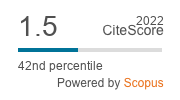The dietary supplement ephedra is a potent sympathomimetic that was banned by the US Food and Drug Administration in 2003 because of its deleterious effects on cardiovascular function and thermoregulation during exercise. Unfortunately, extracts of ephedra can still be obtained via the internet and are in use worldwide. The horse is the only athletic species other than humans that sweats to thermoregulate and it controls cardiovascular function in a similar fashion. The purpose of this study was to use the horse to examine the acute effects of ephedra (Ma Huang) to investigate on markers of performance as well as effects on cardiovascular function and thermoregulation during acute exercise. Six Standardbred mares (~450 kg; 6-12 years of age) were used in a crossover design consisting of a ephedra (Ma Huang containing 8% ephedra alkaloid) and control (applesauce) group. All horses performed an incremental graded exercise test (GXT) at a 6% fixed grade to measure oxygen uptake (VO2), run time, velocity at VO2max, maximal velocity, recovery time, haematocrit, total plasma protein concentration, heart rate, right ventricular pressure (RVP), pulmonary arterial pressure (PAP), rectal temperature and recovery. Measurements were recorded at rest, during exercise and post 2 and 5 min recovery. There was a difference (P<0.05) in pre-exercise haematocrit but not in any other haematocrit or plasma protein sampling intervals. VO2 was greater (P<0.05) for the ephedra group before exercise, at each step of the GXT, at VO2max, and during recovery compared to the control group. Recovery time was significantly different, but run time was not (P≯0.05). Heart rate was elevated (P<0.05) at 2 and 5 min recovery in horses administered ephedra. Significant differences were observed for RVP and PAP and rectal temperature during recovery. Recovery score (sweating response, respiration rate, behaviour) was altered (P<0.05) by ephedra administration. These data suggests an increase in energy expenditure and thermogenesis when horses consume ephedra. However, markers of performance (run time, velocity at VO2max, and maximal velocity completed) were not altered by ephedra administration.
Research-Article
Ephedra increases VO2, impairs thermoregulation and cardiovascular function, but does not enhance exercise performance
R.P. Norton Related information
1 Equine Science Center, Department of Animal Science, Rutgers, State University of New Jersey, New Brunswick, 84 Lipman Drive, New Brunswick, NJ 08901-8525, USA
, R.A. Lehnhard Related information2 Department of Kinesiology, University of Maine, 112 Lengyel Hall, Orono, ME 04469, USA
, C.F. Kearns Related information1 Equine Science Center, Department of Animal Science, Rutgers, State University of New Jersey, New Brunswick, 84 Lipman Drive, New Brunswick, NJ 08901-8525, USA
, K.H. McKeever Related information1 Equine Science Center, Department of Animal Science, Rutgers, State University of New Jersey, New Brunswick, 84 Lipman Drive, New Brunswick, NJ 08901-8525, USA
Comparative Exercise Physiology: 9
(2)- Pages: 109 - 117
Published Online: August 15, 2013
Abstract
Keywords: ephedra, horse, haemodynamics
2023 Journal Impact Factor
0.9
source: Journal Impact Factor 2023™ from Clarivate™

Institutional Offers
For institutional orders, please contact [email protected].
Purchase Options
-
-
-
A. Byström, H.M. Clayton, E. Hernlund, M. Rhodin and A. Egenvall
-
L. Wright, E. Hernlund, C.T. Fjordbakk, B. Ytrehus, E. Law, M. Uhlhorn and M. Rhodin
-
Jane Williams and David Marlin
-
P.S. Rejeki, A. Pranoto, R.E. Prasetya and S. Sugiharto
-
A. Byström, H.M. Clayton, E. Hernlund, M. Rhodin and A. Egenvall
-
A. Andarianto, P.S. Rejeki, , A. Pranoto, T.W. Aga Seputra, and M. Miftahussurur
-
E.J. Hall and A.J. Carter
-
L. St. George, S.H. Roy, J. Richards, J. Sinclair and S.J. Hobbs



